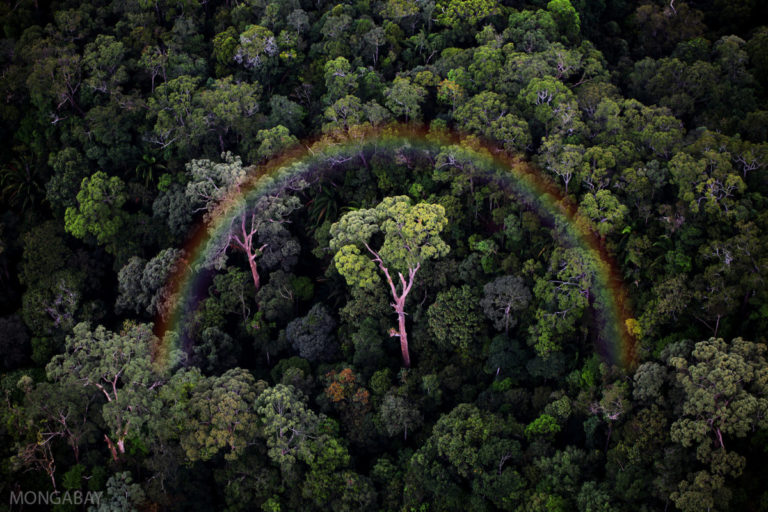- This week, Norway’s Government Pension Fund Global – the world’s largest sovereign wealth fund – released its 2018 holdings.
- Thirty companies were divested from on the basis that they “impose substantial costs on other companies and society as a whole and so are not long-term sustainable.” These “risk-based divestments” appear to include four plantation companies: Olam International, Halcyon Agri Corp, Sime Darby Plantation and Sipef.
- These companies are involved in the production of commodity crops in tropical areas in Southeast Asia, West Africa, and Oceania and have been criticized for destructive land use practices like deforestation.
This week, Norway released the 2018 investment holdings of its massive government pension fund. Notably absent were four plantation companies previously listed in the portfolio: Olam International, Halcyon Agri Corp, Sime Darby Plantation and Sipef.
Olam International and Halcyon Agri Corp are both Singapore-based agribusiness companies, with Olam linked to deforestation for oil palm plantations in Gabon and cocoa in Ghana and the Ivory Coast, and Halcyon Agri’s subsidiary Sudcam razing rainforest for a vast rubber plantation near a UNESCO site in Cameroon. Belgium-based Sipef runs oil palm, rubber, banana and tea plantations in Indonesia and Papua New Guinea, while Sime Darby Plantations produces palm oil in several countries in Southeast Asia, West Africa and Oceania.

With around $1 trillion in assets, Norway’s Government Pension Fund Global (GPFG) is the world’s largest sovereign wealth fund. Norway established the fund in 1990 to invest surplus profits from its petroleum sector, which it does so in hundreds of companies worldwide.
However, it doesn’t invest in just any company – certain ethical guidelines must be met. Coal mining, human rights violations, production of nuclear weapons, and “severe environmental damage” are a few criteria that prohibit the fund from investing in a company.
“The Ministry of Finance has established ethically motivated guidelines for observation and exclusion of companies from the fund,” said Marthe Skaar of Norges Bank Investment Management, which manages the fund. “The guidelines contain criteria for exclusion based either on the companies’ products or on their conduct.
“In addition, the fund itself may divest from companies that impose substantial costs on other companies and society as a whole and so are not long-term sustainable.”
While Olam, Sime Darby Plantations, Halcyon Agri, and Sipef aren’t included by name in the GPFG 2018 Responsible Investment report (“We do not disclose the names of our risk-based divestments,” Skaar told Mongabay), the report states 30 companies were divested from following “assessments of governance and sustainability risks.” These four companies are also no longer included in the GPFG 2018 holdings report while they were included in it in 2017.
Mongabay reached out to Halcyon Agri, Sime Darby Plantation, Sipef and Olam International, but had not received responses from the latter three companies by press time. A representative from Halcyon Agri declined to comment. On March 6, Sipef released a letter directed at the Norges Bank Investment Management that laments the divestment.
“We deeply regret this decision, and the lack of consultation that has preceded it.” (Read Sipef’s full letter here.)

Conservation organizations like Rainforest Foundation Norway are lauding the move.
“The divestments announced [this week] should be seen as a warning shot to those investors and companies still involved in deforestation,” said Vemund Olsen, senior adviser at Rainforest Foundation Norway. “Their business model is outdated.”
In total, the GPFG has divested from more than 60 companies since deforestation became an ethical criterion in 2012. Of these, 33 were involved in palm oil production.
“It’s great to see that the GPFG is taking action against deforestation,” Olsen said in a statement. “It’s increasingly clear that companies involved in deforestation, directly or through their supply chains, are a major liability to investors.”
Editor’s note (March 7, 2019): A previous version of this story incorrectly stated that Sipef operates in the Solomon Islands. The story was updated to remove this error, as well as include a statement from Sipef released after the story’s publication.
Feedback: Use this form to send a message to the editor of this post. If you want to post a public comment, you can do that at the bottom of the page.














